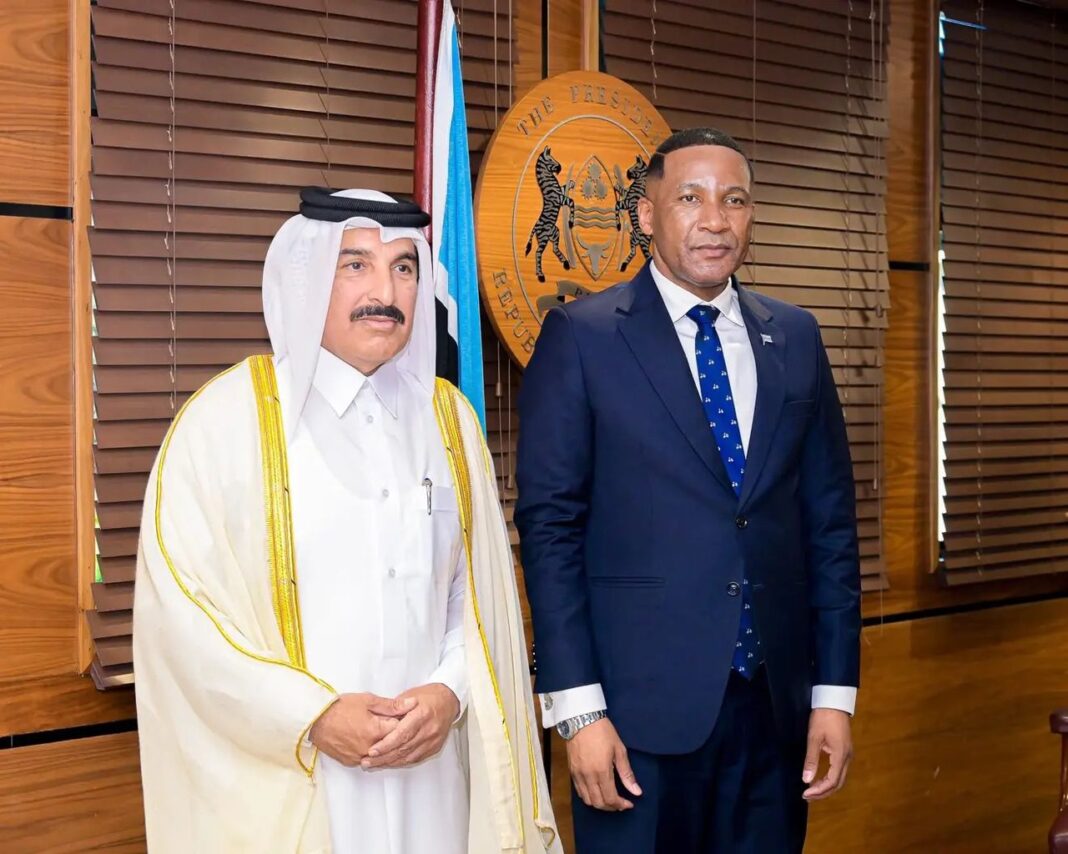The longstanding economic partnership between Qatar and the United Kingdom offers a powerful lesson for nations like Botswana seeking to diversify their economies. A recent analysis from the Centre for Economics and Business Research (Cebr) highlights that this relationship is more than just capital inflow; it is a strategic, long-term commitment that has generated a cumulative revenue impact of £1.3 trillion and supported over 600,000 jobs in 2022 alone. This success, anchored in Foreign Direct Investment (FDI), provides a tangible template for Botswana’s economic diversification drive.
Botswana, with its remarkable record of political stability and a national agenda to move beyond its reliance on diamond mining, has already laid the groundwork for attracting foreign investment. However, its FDI inflows have remained volatile. The report argues that a proactive, government-led approach, similar to the UK-Qatar model, is essential to attract the kind of high-impact, long-term partnerships that can transform the nation’s economy. The $12 billion investment deal with Qatar’s Al Mansour Holdings serves as a timely and concrete example of this strategy in action, showing a clear alignment between investor interests and Botswana’s national development goals.
The Architecture of a Strategic Partnership
The UK-Qatar relationship is built on a deliberate, long-term approach to investment. Unlike short-term portfolio investments, Foreign Direct Investment (FDI) involves a deep, committed relationship where an investor takes a significant stake in a company. This partnership was formalised in May 2022 with the UK-Qatar Strategic Investment Partnership (SIP), a government-to-government agreement where Qatar committed to investing up to £10 billion over five years into strategic sectors.
This isn’t just about financial transactions; it represents a shared commitment to a host nation’s economic and environmental future. For example, Qatar has committed £1 billion to a clean energy partnership with the UK, directly supporting its decarbonization efforts and bolstering its energy security. This kind of strategic alignment transforms a purely financial relationship into a mutually beneficial alliance, demonstrating that success is a product of deliberate political and economic coordination.
Catalysing Growth: Beyond London’s Borders
The strength of Qatari investment in the UK lies in its strategic breadth, spanning a diverse portfolio of sectors and having a significant economic footprint across the country, not just in its financial hub. Major investments include strategic stakes in retail, aviation, hospitality, and real estate. This diversity creates a more resilient and impactful economic relationship.
The economic benefits of these investments are distributed far beyond London. The data shows that 53% of the turnover and 34% of the Gross Value Added (GVA) from Qatari-owned businesses are generated outside of the capital. This geographic reach is particularly evident in employment, where one out of every two jobs supported by these businesses is located in a region outside of London. This distribution is crucial, as it ensures that the economic benefits contribute to job creation and growth on a national scale. The employment multiplier effect is even higher in regional areas, meaning that each direct job created by Qatari investment generates a proportionally larger number of additional jobs in local supply chains and the wider community.
A Glimpse into the Future: The Strategic Shift
The UK-Qatar partnership is evolving with future investments demonstrating a crucial shift from traditional high-value assets to strategic, catalytic investments in future-oriented industries. The Strategic Investment Partnership formalised this new direction, with committed investments targeting key sectors such as fintech, life sciences, and zero-emission vehicles.
A prime example is the Qatar Investment Authority’s (QIA) £85 million investment in Rolls-Royce SMR Ltd. This is not a short-term investment; it is a long-term commitment to a nation-building project that aligns with the UK’s decarbonization goals. This project, which involves the development of Small Modular Reactors (SMRs) for low-carbon nuclear power, is expected to create 6,000 jobs by 2025. This represents a “bet on the future,” where capital is deployed to build a strategic portfolio of companies at the forefront of the global energy transition.
A Strategic Action Plan for Botswana
The UK-Qatar partnership offers a powerful set of lessons for Botswana. By adopting a more proactive and strategically focused approach, Botswana can transform its FDI strategy from a volatile, market-driven approach to a high-impact model.
Elevate Investment Promotion: Move beyond a purely marketing-based approach to a proactive, government-to-government strategy. This means forging high-level dialogues with sovereign wealth funds and long-term private investors who are interested in multi-sectoral partnerships, as exemplified by the recent deal with Al Mansour Holdings.
Maximise Regional Impact: Use Special Economic Zones and targeted incentives to actively direct FDI to create jobs and value in regions beyond the capital. Botswana is already well-positioned to apply this lesson with its existing zones in areas like Selebi Phikwe and at the Sir Seretse Khama International Airport.
Cultivate Catalytic Investments: Instead of solely attracting investment for the extraction of raw materials, Botswana should seek partners to co-invest in high-value, transformative projects. A strategic partnership could focus on building advanced manufacturing facilities for solar energy components or developing technology for diamond beneficiation.
Invest in Infrastructure and Skills: Secure investment in critical infrastructure, such as reliable energy grids and digital networks. Additionally, targeted skills development is essential. Botswana must invest in vocational training and educational programs, potentially in collaboration with foreign investors, to ensure its workforce can meet the demands of future-oriented industries.
In a world of increasing geopolitical complexity, Botswana’s international reputation as a beacon of political stability and strong governance is its most powerful competitive advantage. For long-term investors, this institutional strength provides a low-risk environment that is often more attractive than short-term financial incentives in less stable regions. By adopting the strategic blueprint offered by the UK-Qatar model, Botswana can position itself as the trusted and reliable partner for strategic investors, driving sustainable growth and a more prosperous future for its people.



